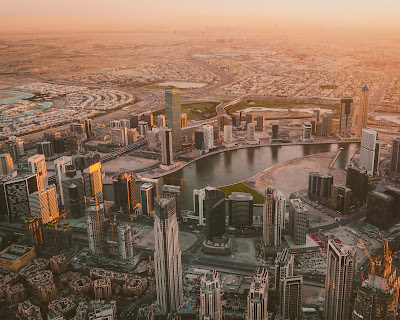Want to become a writer at Eat My News? Here is an opportunity to join the Board of Young Leaders Program by Eat My News. Click here to know more: bit.ly/boardofyoungleaders
Westernization and Globalization have been a pervasive and accelerating influence across the world in the last few centuries. But does westernization equal globalization? Is globalization a marvelous contribution of the western civilization or as much fear, a continuation of western imperialism and dominance?
The assimilation of western culture and the social process of becoming familiar with its customs and practices vaguely but purposefully bind together the idea of westernization. This movement is establishing itself globally through technology, law, politics, economics, lifestyle, diet, clothing, religion, philosophy, and values. There has been an inevitable reaction to westernization, transforming the world at a dizzying pace. But this paradigm shift towards modernization comes along with a cost to pay, a threat to longstanding traditions and culture.
Thousands of years ago, “the west” was born in Greece with all of its advancements in culture and science. Greek plays and myths, the architecture of the great temples, and even the basic schools of thought all survived long past the fall of the ancient Greek city-states. They moved westwards to the next great civilization, the Romans, and after their fall, continued to move further west up until America. Check this to read about a brief history of western culture.
Does Westernization Inevitably Tailgate Modernization?
Camille Paglia once quoted, “Modernization means Westernization” but does this statement hold to the face of life? Westernization is about the adoption of western values whereas modernization has a wider connotation. Modernization is a change that offers the promise of the preservation of the past whereas westernization threatens to rob us of our culture and traditional values. Being modern by definition is thinking primarily by principles rather than by analogy. But the bigger question yet remains, does modernization requires westernization?
Many pundits hold that for non-Western societies to modernize, they must adopt the individualist ethos that led to the rise of the West. But this view ignores key differences between material and cosmological beliefs, and how those differences have shaped economic and social development around the globe.
Does Westernization Bring Culture in Peril?
Culture is the arts elevated to a set of beliefs. It is a cluster of intangibles and tangible aspects of life passed down from generation to generation and must be preserved. With the accelerating influence of westernization across the world in the last few years, a serious threat of slowly wiping out the different cultures is being established. A massive paradigm shift towards westernization is threatening cultural diversity all around the world.
Today cultures have been subjugated and dominated by the west. Our cultural practices have paved the way for a foreign way of doing things. Westernization has already greatly impacted our lifestyle and characteristics and must not be allowed to affect our values as well. A tradition must not be buried under the name of westernization. So, while we grow our branches towards modernization and globalization, we must stick our roots to our own culture and ethnicity.
With the Bad Comes the Good
Although westernization can be viewed as an unfortunate reality, it also comes along with some good. Westernization has certainly helped different cultures and societies to bind together as ethnocentrism can lead to cultural devolution. It has also helped fast pace the process of globalizing the economy and creating better and efficient ways of producing goods and services. Westernization has also helped build a world with greater knowledge, by increasing the ability to communicate and share knowledge and ideas globally.
Carlos Fuentes quoted, “Under the veneer of Westernization, the cultures of Indian world- which have existed for 30,000 years continue to live. Sometimes in a magical way, sometimes in the shadows. Indian culture is one of the oldest cultures in the world and dates back to thousands of years. Anything that is proven by time thus definitely has intrinsic values that are appreciated and cherished by Indians but a new fear is creeping in, a fear that the rampant westernization amongst Indians is leading to the gradual decline and eventual ruins of Indian culture and tradition.
Western cultures have had a great impact on the celebration of festivals and religious practices, clothing, foods, arts, traditional sciences, language, and lifestyle. Westernization has helped India in raising a capitalist industrial economy, in the growth of modern state institutions and resultant transformations like social power, the emergence of democracy but it must not be allowed to affect our understanding and commitment to our own culture.
Indian culture is something that brings the culture of different people together each one following their own with peace and harmony. So, preserving Indian culture does not mean bringing back the age-old customs and social norms but saving our way of life to keep India on being a multi-social, multi-ethnic, and multi-religious society.
Conclusion
We are now living in a global world with the borders becoming hazier where osmosis of cultural aspects has become inevitable but this must not lead to the abandonment of your own culture. Globalization and Modernization must be achieved in today’s world to thrive and grow but this must be done without entailing too much westernization.
Written by - Riya ChhikaraEdited by - Vaibhav Sharma










0 Comments